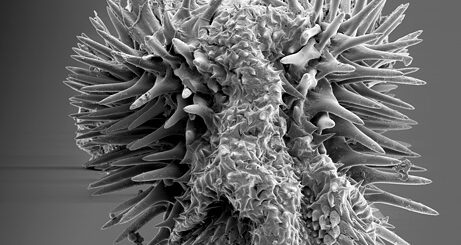Engaging Undergraduates in Research


As it slowly sinks in that third year has now been and gone, I overhear more and more of my fellow undergraduate chemists pondering aloud just what exactly it is that you do after leaving university with a chemistry degree. ‘Research’ or ‘work in a lab’ seem to be the most common answers to this question. The follow-up question is always the same, and sets anxiety levels to overload for those who are unsure: ‘So what can you actually research – or do – in a chemistry lab?’
It is understandable – forgivable, even – for a chemistry undergraduate to assume that they could go on to specialise in organic, inorganic, physical or analytical chemistry, as well as other subjects that have become familiar throughout the degree course. But what you can research during your post-graduate chemistry career is not limited only to chemistry, but whatever chemistry can be applied to.
Obtaining a job in the research and development sector or even a post-graduate position in academia is similar to other non-scientific careers in certain aspects, with the most obvious likeness being that the more experienced you are, the more likely you are to be hired. A major problem for emerging graduates of scientific and engineering disciplines is the lack of experience outwith the degree course itself. There are indeed several Scotland- and UK-based funding bodies whom are happy to provide summer vacation scholarships for undergraduates for the purposes of undertaking a research project at their home institution (such as the Carnegie Trust, the Engineering and Physical Sciences Research Council (EPSRC) and the Medical Research Council (MRC), to name a few). Sadly, there is very rarely such a thing as a limitless budget, and as such only a set number of scholarships can be handed out each year, making the application process very competitive. These funding bodies also tend to impose restrictions on the students that can apply for these scholarships – there are few who allow second year undergraduates to apply, and many of these types of scholarship are awarded to penultimate-year students only. There are other (also competitive) programmes which offer science and engineering students the chance to gain lab experience abroad, such as Research Internships in Science and Engineering (RISE) and the International Association for the Exchange of Students for Technical Experience (IAESTE), but the downside of these types of vacation scholarship is that they are often not paid (although living expenses are covered).
An alternative way to enhance your graduate C.V. is to undertake an industrial or research placement year. Some universities have made these types of placement mandatory within the courses they offer, and for good reason – they strengthen vital practical abilities, prove interpersonal skills and may even lead on to post-graduate job offers for successful students. However, with more and more universities starting to offer industrial placement years as part of their curriculum, it is again the same old story – competition.
How then, when the scientific world is so competitive, is it possible to stand out from the crowd?
Inspired by the Vertically Integrated Projects (VIPs) instigated at the Georgia Institute of Technology in the US, staff at the University of Strathclyde have set up a varying group of VIPs. These VIPs are aimed at bringing different disciplines and faculties together for interdisciplinary research purposes and increasing the employability of the undergraduate students involved. The projects offered by the university currently are primarily engineering-based, but are combined with other STEM subjects such as biology, computer science and mathematics (as well as a few subjects from the Humanities and Social Sciences department for added diversity). The ideology behind the VIPs is that undergraduate students will work on a research project with their supervisors, who may be PhD students, post-graduates or lecturers. When the project continues in the next academic year, more undergraduates are recruited, and the more-experienced undergraduates are able to supervise and pass knowledge to the new recruits based on what they have learned or worked on during the previous year. In this way, the projects grow and all involved are afforded the opportunity to ‘ascend’ with the project (hence ‘Vertically’ Integrated Projects).
During my second year of university I was lucky enough to be a member of the Microfluidic Nanomedicine for Cancer Research team, headed by Professor Rein Ulijn, Dr Michele Zagnoni and Dr Marie Boyd*. The aim of the VIP was to apply chemical, biological and engineering knowledge to numerous research projects that in some manner combined peptide-based hydrogels, cancerous cell lines and microfluidic devices.
The innate openness of these types of projects allows all involved an opportunity to be educated in different disciplines, in theory as well as in practice. Amino acids, peptide formation, self-assembly, cancer cell biology and laminar flow are amongst numerous topics that I learned about via the VIP, with topics such as self-assembly not covered in my degree course until the third year of study. The training in the biology and engineering laboratories taught me that my practical chemistry skills can be easily applied to other types of lab work. It’s not just practical skills that can be gained from this type of interdisciplinary work – research communities are formed, contacts made and – I nearly say this through gritted teeth for the cheesiness of it – friendships made between people who share common interests but who may not otherwise have met. This VIP has shown myself and all others involved what our respective fields can be applied to, giving us all a greater understanding of what can be expected in future careers both in academia and industry.
An aspect of VIPs that is advantageous for undergraduate scientists and engineers is that these interdisciplinary projects lay the foundations for working in industry as an industrial trainee. For example, students who take an industrial placement year will be expected to work with people from several different departments within their company, as well as communicating with project supervisors and other scientists, some with more experience than others. Practical skills that are developed in student-led VIPs, such as project management and organisational skills, are of great value when it comes to independent or group projects that industrial trainees will work on for the duration of their placement.
Vertically integrated projects are still a relatively new way of undertaking interdisciplinary research, and are especially novel with their involvement of undergraduate students. The more projects introduced, and the more institutions that they are introduced in, the more people that will hopefully see the importance of diversity in scientific research.
*Please note that this VIP is no longer running, although the community that arose from it is very much thriving.
Engaging Undergraduates in Research by Debbie Nicol was specialist edited by Douglas Young and copy edited by Eloise Johnston.










